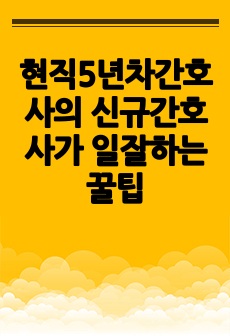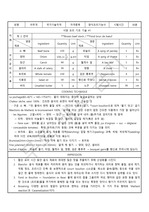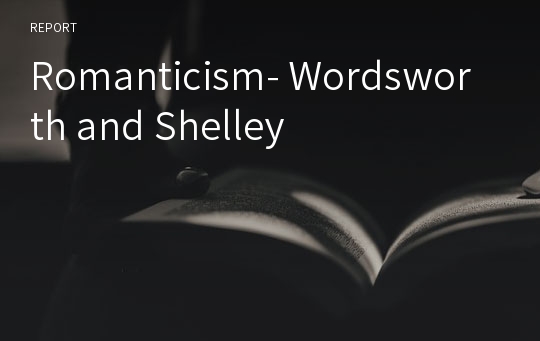Romanticism- Wordsworth and Shelley
*종*
다운로드
장바구니
소개글
My argument in this essay is that, after the French Revolution, the English Romantic self, as represented in several poems of William Wordsworth, goes through a purifying process for its identification, but as represented in the poems of Percy Bysshe Shelley, it also goes through a purgatorial process for its annihilation in the later Romantic period. The process for Wordsworth is primarily accomplished through acts of remembering, through facing the memory of the past, that is, history, whether personal or public. In the case of Shelley, the process is accomplished through acts of forgetting history. There are thus significant differences between Wordsworth, the major figure of early Romantics, and later figures born after or just before the revolutionary year of 1789 such as Shelley, John Keats and Lord George Gordon Byron, in their presentations of selfhood and in their poetic reactions to revolutionary disillusionment and defeat.First, I will show how Wordsworth, in the philosophical tradition of John Locke, tries to reestablish his internalized selfhood through poetic, somewhat ritualistic acts of remembering and purification. Then, I will show that Shelley follows the tradition of Jean-Jacques Rousseau and thus his selfhood is presented through a poetics of forgetting and purgation in The Triumph of Life. I will focus on the Wordsworthian self and the “spots of time” in The Prelude, and I will briefly compare his poetically established selfhood with Shelley`s annihilated selfhood. My discussion on the two poets’ Romantic poetics will be confined within Locke’s theory of human identity and Rousseau’s critique of the Enlightenment self.
목차
Title:The Poetics of Remembering and Forgetting: A Study of the Romantic Selfhood in W. Wordsworth’s The Prelude and P. B. Shelley’s The Triumph of Life
1. Wordsworth’s Poetics of Remembering in the Light of Locke’s Philosophy of Human Identity
2. Shelley’s Poetics of Forgetting in the Light of Rousseau’s Critique of the Enlightenment Selfhood
본문내용
Wordsworth’s Poetics of Remembering in the Light of Locke’s Philosophy of Human IdentityWordsworth’s poetics aims at ritual rebirth, figuration, embodiment, self-identification, subject-production and is accomplished through a process of remembering the past memory and purifying its tainted traces. The following passage from The Prelude implies what Wordsworth means by purification and memory. It shows the delicate fusion of the empirical and rational theories of knowledge which marks Wordsworth’s poetry and poetics.
the soul--
Remembering how she felt, but what she felt
Remembering not--retains an obscure sense
Of possible sublimity, to which
With growing faculties she doth aspire,
With faculties still growing, feeling still
That whatsoever point they gain they still
Have something to pursue.
(1799. II. 364-371)
Locke’s system of philosophy allows two sources of knowledge: external objects leave simple ideas on the human mind through sensory experiences, but the human mind is not without the ability to receive and associate those ideas. The inner operations of the mind—perception, association, reflection, and memory, etc.—are also the source of knowledge. The act of remembering for Locke and Wordsworth is in that sense nothing but the inner a priori property of the mind. It is the act of reflection on the process of transfiguring experience into knowledge through the senses; and the object of remembering is the generation of simple ideas, which are associated together into complex ideas. The above passage poetically shows the unity of the empirical mechanism of knowledge generation and rational reflection. It suggests that Wordsworth’s poetics of purification derive from the reflection on the empirical knowledge generation accompanied by the acts of remembering, thinking, and willing.
참고 자료
Chandler, James K. Wordsworth’s Second Nature: A Study of the Poetry andPolitics. Chicago: U of Chicago P, 1984.
De Man, Paul. “Shelley Disfigured.” Deconstruction and Criticism. Ed. Harold
Bloom. New York: Continuum, 1979.
Duffy, Edward. Rousseau in England: The Context for Shelley’s Critique of the
Enlightenment. Berkeley: U of California P, 1979.
Easthope, Antony. Wordsworth Now and Then: Romanticism and Contemporary Culture. Buckingham: Open UP, 1993.
Ferrara, Alessandro. Modernity and Authenticity: A Study of the Social and Ethical
Thought of Jean-Jacques Rousseau. Albany: State U of New York P, 1993.
Hartman, Geoffrey H. The Unremarkable Wordsworth. Theory and History of
Literature, Vol. 34. Minneapolis: U of Minnesota P, 1987.
Locke, John. An Essay Concerning Human Understanding. I. Ed. John W. Yolton.
London: Everyman’s Library, 1961.
Rousseau, Jean-Jacques. The Confessions of Jean-Jacques Rousseau. Ed. and Trans.
Lester G. Crocker. New York: The Pocket Library, 1956.
---. Discourse on the Origin and Foundations of Inequality Among Men. Rousseau’s
Political Writings. Eds. Alan Ritter and Julia C. Bondanella. Trans. Julia C. Bondanella. A Norton Critical Edition. New York: Norton, 1988. 3-57.
Shelley, Percy Bysshe. On Love. Shelley’s Poetry and Prose. A Norton Critical
Edition. Eds. Donald H. Reiman and Sharon B. Powers. New York: Norton,
1977. 473-474.
---. Prometheus Unbound. Shelley’s Poetry and Prose. A Norton Critical Edition.
Eds. Donald H. Reiman and Sharon B. Powers. New York: Norton, 1977.
130-209.
---. The Triumph of Life. The Norton Anthology of English Literature, II. 5th Ed.
Eds. Abrams, Donaldson, et al. New York: Norton, 1986. 759-776.
Shin, Kyungwon. “Search for Personal Identity in Locke and Wordsworth.” English
Language and Literature 35 (1989): 627-650.
Wordsworth, Jonathan. William Wordsworth: The Borders of Vision. Oxford:
Oxford UP, 1982.
Wordsworth, William. The Prelude 1799, 1805, 1850. A Norton Critical Edition.
Eds. Jonathan Wordsworth, M. H. Abrams, and Stephen Gill. New York:
Norton, 1979.


























